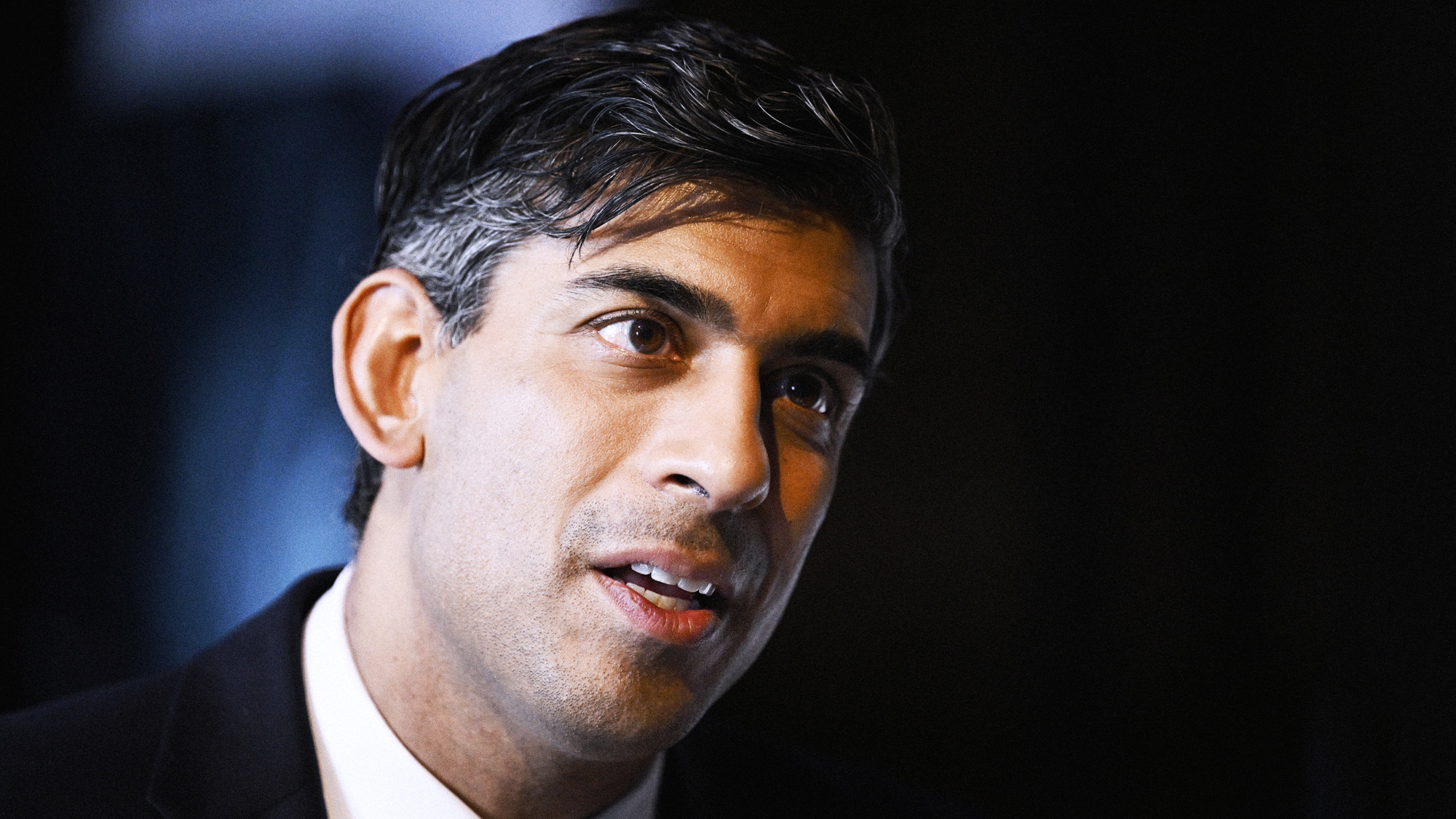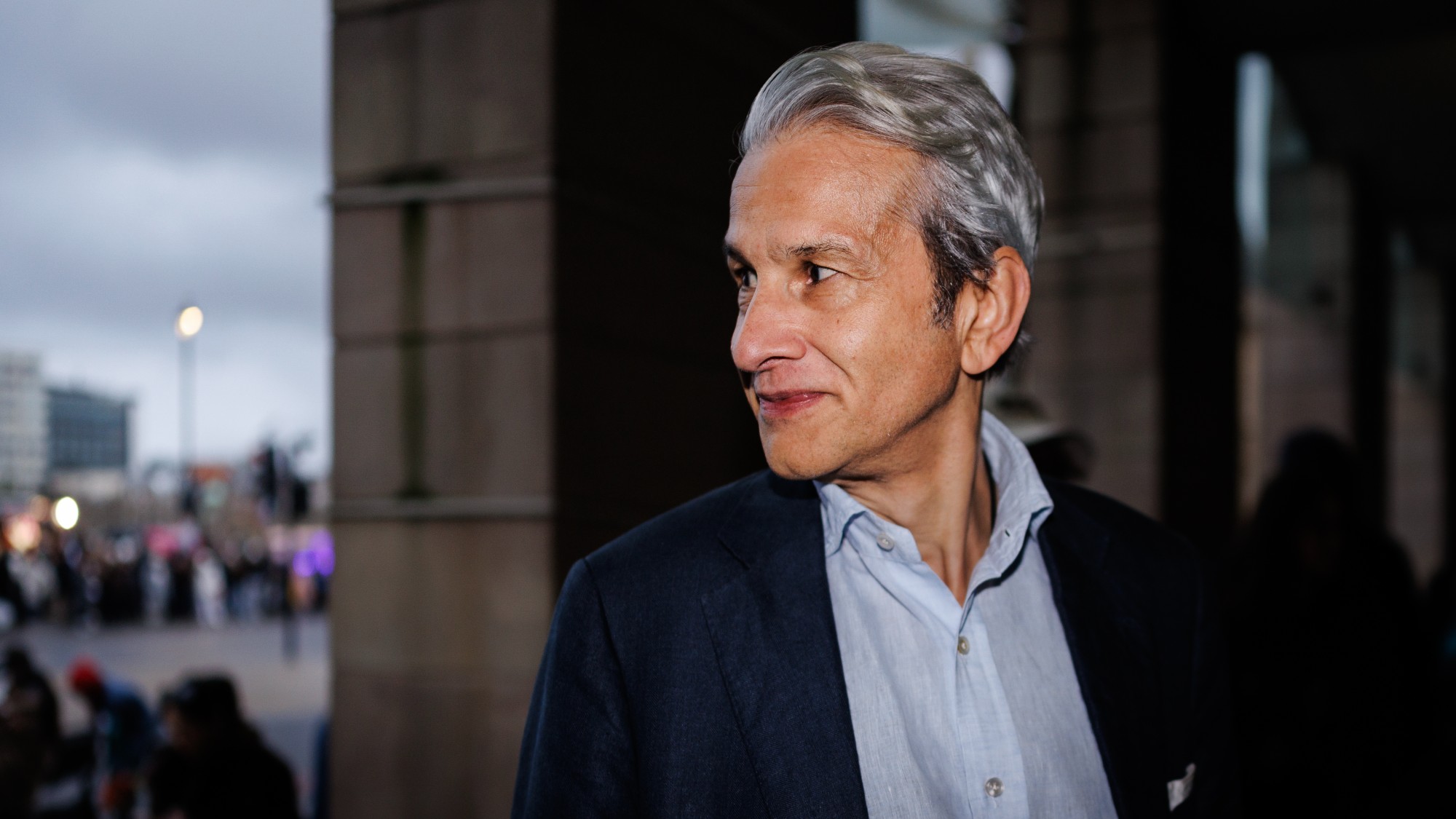Is Ofcom on collision course with GB News?
UK broadcast regulator launches yet another probe into right-leaning channel over impartiality and bias

A free daily email with the biggest news stories of the day – and the best features from TheWeek.com
You are now subscribed
Your newsletter sign-up was successful
Ofcom is investigating the prime minister's controversial appearance on a GB News Q&A show, highlighting the media watchdog's ongoing battle to regulate the right-wing TV channel.
"People's Forum: the Prime Minister", which aired on 12 February, resulted in more than 500 complaints related to bias being sent to Ofcom. Rishi Sunak took questions from 100 undecided voters, and presenter Stephen Dixon said the questions had not been seen in advance by the PM or by GB News.
Ofcom requires political and news shows to maintain impartiality, fairness and accuracy – especially in the run-up to elections. In a statement about the investigation, the regulator highlighted parts of its broadcasting code requiring that "an appropriately wide range of significant views must be included and given due weight in such programmes, or in clearly linked and timely programmes".
The Week
Escape your echo chamber. Get the facts behind the news, plus analysis from multiple perspectives.

Sign up for The Week's Free Newsletters
From our morning news briefing to a weekly Good News Newsletter, get the best of The Week delivered directly to your inbox.
From our morning news briefing to a weekly Good News Newsletter, get the best of The Week delivered directly to your inbox.
The prime minister's spokesperson said Sunak did not regret taking part, adding that media appearances "are an important part of the democratic process".
What did the commentators say?
The impartiality requirement "does not mean that the same amount of time needs to be given to opposing views", said Sky News. But the issue of political figures such as Jacob Rees-Mogg presenting topical programmes is "increasingly becoming contentious as more MPs take these jobs".
The problem, said Politico's London Playbook newsletter, is that it's "not at all clear what Ofcom is investigating". Complainants accused Sunak of answering only "selected questions", and criticised the timing of the show, which aired just days before two by-elections (both of which the Conservatives lost). Questions were also raised about the presence of two "so-called 'vaccine-damaged' participants" in such a small audience. Ofcom "wouldn't say whether those issues were the subject of the probe".
But GB News "emphasised on the night of the broadcast" that Keir Starmer had been invited to take part in a programme with the same format, said The Telegraph.
A free daily email with the biggest news stories of the day – and the best features from TheWeek.com
The Labour leader's decision not to do so is perhaps explained by the five occasions that GB News has been found in breach of Ofcom guidelines since launching in 2021, said Left Foot Forward. These occasions included Ofcom ruling that potentially harmful content related to the Covid-19 vaccine had been shared by presenter Mark Steyn, who "wrongly claimed figures from the UK Health Security Agency data provided evidence of a third booster causing hospitalisation and death".
The network is also under 12 ongoing investigations, many related to impartiality issues. But Ofcom last week rejected 70 complaints about GB News presenter Neil Oliver linking the Covid-19 vaccine to "turbo cancer". It appears that Oliver's "freedom to express misleading or indeed outright deranged ideas trumps Ofcom's mandate to prevent harmful or offensive content", said Jane Martinson in The Guardian.
This "odd decision" helps to "sum up where Ofcom is failing". Despite a "constant bombardment of extreme content from GB News", lately the watchdog has "fetishised free speech above all else" – even above protecting the public from harmful content, despite its newly expanded remit as the formal regulator for online harm in the recent Online Safety Act.
Quite right, said Andrew Tettenborn on Spiked. "We should be reducing, not increasing, the power of regulators to police what we can see and hear." The British people "should be trusted to decide which news broadcasts to trust or not", rather than being treated like "schoolchildren".
What next?
Ofcom's investigation into Sunak's appearance on GB News "serves as a good get-out for Starmer not to appear", said Politico.
But surely the best way to balance Sunak's televised Q&A would be for the Labour leader to accept the network's invitation, said right-wing news blog Guido Fawkes. In any case, Ofcom "urgently needs to clarify their regulations as the political broadcasting landscape changes". It's clear that "channels are still in limbo about what exactly will be allowed during the election campaign".
Yet GB News "shows little concern about Ofcom", said Martinson in The Guardian. The investigations into Rees-Mogg's shows have not stopped him persuading the prime minister "to take his place presenting on the channel on Monday".
"Ofcom is in a challenging position in the face of wily new operatives and politically motivated bad actors," she wrote. "Yet it would do well to remember that the dangers of misinformation, like pollution or disease, are often difficult to spot until it's too late."
Harriet Marsden is a senior staff writer and podcast panellist for The Week, covering world news and writing the weekly Global Digest newsletter. Before joining the site in 2023, she was a freelance journalist for seven years, working for The Guardian, The Times and The Independent among others, and regularly appearing on radio shows. In 2021, she was awarded the “journalist-at-large” fellowship by the Local Trust charity, and spent a year travelling independently to some of England’s most deprived areas to write about community activism. She has a master’s in international journalism from City University, and has also worked in Bolivia, Colombia and Spain.
-
 Political cartoons for February 19
Political cartoons for February 19Cartoons Thursday’s political cartoons include a suspicious package, a piece of the cake, and more
-
 The Gallivant: style and charm steps from Camber Sands
The Gallivant: style and charm steps from Camber SandsThe Week Recommends Nestled behind the dunes, this luxury hotel is a great place to hunker down and get cosy
-
 The President’s Cake: ‘sweet tragedy’ about a little girl on a baking mission in Iraq
The President’s Cake: ‘sweet tragedy’ about a little girl on a baking mission in IraqThe Week Recommends Charming debut from Hasan Hadi is filled with ‘vivid characters’
-
 Media: Why did Bezos gut ‘The Washington Post’?
Media: Why did Bezos gut ‘The Washington Post’?Feature Possibilities include to curry favor with Trump or to try to end financial losses
-
 The Washington Post is reshaping its newsroom by laying off hundreds
The Washington Post is reshaping its newsroom by laying off hundredsIn the Spotlight More than 300 journalists were reportedly let go
-
 Why is the Pentagon taking over the military’s independent newspaper?
Why is the Pentagon taking over the military’s independent newspaper?Today’s Big Question Stars and Stripes is published by the Defense Department but is editorially independent
-
 Why X could face UK ban over Grok deepfake nudes
Why X could face UK ban over Grok deepfake nudesThe Explainer Ofcom is investigating whether Elon Musk’s AI chatbot breached Online Safety Act
-
 ‘Netflix needs to not just swallow HBO but also emulate it’
‘Netflix needs to not just swallow HBO but also emulate it’instant opinion Opinion, comment and editorials of the day
-
 Paramount fights Netflix for Warner as Trump hovers
Paramount fights Netflix for Warner as Trump hoversSpeed Read Paramount Skydance is seeking to undo Netflix’s purchase of Warner Bros. Discovery
-
 Rothermere’s Telegraph takeover: ‘a right-leaning media powerhouse’
Rothermere’s Telegraph takeover: ‘a right-leaning media powerhouse’Talking Point Deal gives Daily Mail and General Trust more than 50% of circulation in the UK newspaper market
-
 Can the BBC weather the impartiality storm?
Can the BBC weather the impartiality storm?Today's Big Question MPs’ questions failed to land any ‘killer blows’ to quell the ‘seismic outrage’ faced by the BBC